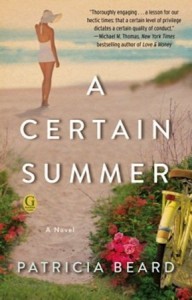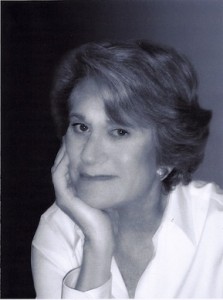 A new novel by the author Susan Minot (“Child, Slave, Soldier”) was reviewed favorably in the New York Times this past weekend. It made me think of the time I went to see her speak at the Unity Temple on the Plaza a few years ago and I was literally the only male in an audience of two hundred plus people. It appears to even the most casual reader that the American market for fiction is strictly segregated along gender lines. The readers of Danielle Steele are a distinct and separate audience from those who read Tom Clancy, to give obvious examples.
A new novel by the author Susan Minot (“Child, Slave, Soldier”) was reviewed favorably in the New York Times this past weekend. It made me think of the time I went to see her speak at the Unity Temple on the Plaza a few years ago and I was literally the only male in an audience of two hundred plus people. It appears to even the most casual reader that the American market for fiction is strictly segregated along gender lines. The readers of Danielle Steele are a distinct and separate audience from those who read Tom Clancy, to give obvious examples.
The challenge is particularly great for an author who is making the switch from non-fiction (less gender specific) to fiction (rigidly divided by sex). I had the pleasure of meeting Patricia Beard a few months ago. An accomplished author with nine non-fiction works to her credit, “A Certain Summer” is her first novel.
Set in a beach resort on the East Coast in 1948, it tells the story of a young wife whose husband is still missing in action four years after D-Day. The protagonist, Helen Wadsworth, has a young son of high school age, who is as reluctant as she is to let go of the hope for his father’s return. Their lives, mother and son, are further complicated by two would-be-suitors, both veterans, both attractive to Helen but in very different ways.
The dominant motif in the book is paradox.
It took me two readings to figure out the structure of the book, which is as carefully crafted as her prior works of business history, “Blue Blood & Mutiny: The Fight for The Soul of Morgan Stanley” and “After The Ball…The Great Wall Street Scandal of 1905.” It is the theme of paradox that allows it to transcend the genre to which it might otherwise be consigned.
To give but a few examples: The more people are buffeted by life’s “chances and changes” (to quote from the Episcopal Prayer Book), the more desperately they want to hold on to their memories of a place which represents the ultimate refuge from change. The more other institutions that determine their public lives-work, school, and community—are eroded by the passage of time, the more they retreat into the private realms of their lives. (The setting of the book is what we would now call a “gated community,” on a barrier reef off Long Island. It could just as easily have been set at a lake in the Ozarks or Minnesota or at a cabin in the mountains of Colorado. Anyone who has such a special summer place in their memory, particularly if it’s tied to family, will appreciate this book.)
 However there is more at work here than a trip down memory lane.
However there is more at work here than a trip down memory lane.
The author poses further paradoxes: how a place thought of as a paradise consecrated to family is simultaneously undermined by the twin serpents of alcohol and sex (plus the explosive additive of gossip); how the costs in human suffering in the aftermath of war are unknowable, not just because they are so vast as to be beyond measure but also because they are so often hidden within veterans’ psyches. When those costs are exacted in unexpected form years later, it’s small consolation that they were incurred in what was regarded as a “good war.”
Finally, author Beard puts forward a particular life lesson that I’ve only grasped in recent years. If you live an affluent suburban existence, you tend to accept people at face value (literally!). If someone is physically appealing, dresses appropriately, has the indicators of financial success, is well spoken, you tend to give them the benefit of the doubt. You are more likely to accept them, and, yes, to even trust them. The book’s heroine, Helen Wadsworth, as she works out the quandary of figuring out what happened to her husband and which suitor to accept, learns just how wrong this comfortable assumption can be.
Patricia Beard has given us not just a fun read (unique in its simultaneous appeal to both men and women readers), but a good one. Let’s hope for more works from an author as wise as she is wryly observant.










Great comment in your penultimate paragraph but if someone as erudite as yourself had to read it twice to fully appreciate, what chance do the rest of us have?
I too lack the requisite heft to elevate myself into such rarefied air.
Embracing my station, I will now go change the oil on my Plymouth.
I feel challenged enough trying to say something intelligible,let alone intelligent,in these posts. Most decent books have subtle points that only a second or third reading will disclose. What’s really daunting is when you have several friends who are all struggling to get published and their books recognized. You’re staggered by their energy and initiative and also sobered by the odds against achieving any kind of critical and financial success. I take some solace in what my late law partner,Allan Coon,pointed out: most works we now think of classics started as works of popular fiction. Allan would have known- he compiled a list of the best works of English and American literature that professor friends saw and insisted could only have been written by a professor of English literature at a top university!
Thanks, Dwight. If “A Certain Summer” is as good a read as your review, we are all in for a treat! Keep writing.
Another great story; it’s on my Amazon list now.
I look forward to your next story as soon as I’m done with the current one; I put away my thesaurus, dictionary, style book, laptop with Google on the home screen, rest up and prepare to tackle the next one where I get schooled again!
If I had your skills I’d throw mine in the dumpster!
Probably not my cup of tea as I mostly prefer non-fiction, but refreshing to read a post from Mr.Sutherland that doesn’t somehow tie politics into the conversation.